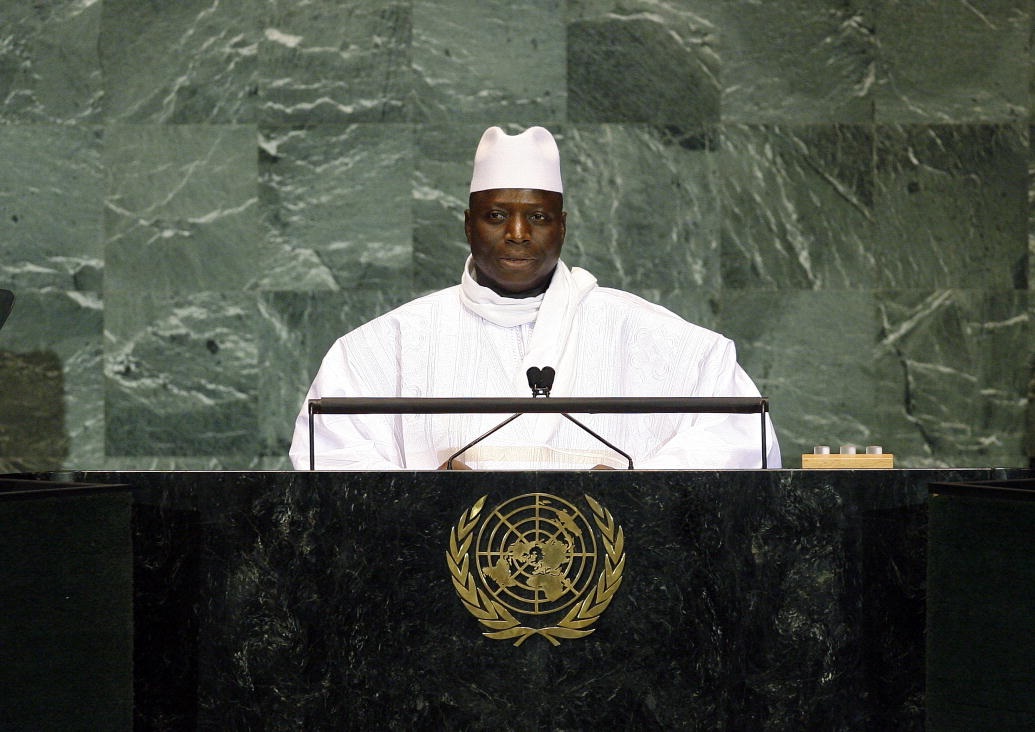
Adama Barrow, a self-made real estate owner, is the Gambian Trump. No international or national media forecast the unbelievable victory of the new President of the Gambia in the December 1 Presidential polls. Barrow was designated in October as opposition candidate during a difficult primary.
The other frontline opposition leaders were off sided by the regime: Solo Sandeng was found dead in custody and Oussainu Darboe was imprisoned in April during opposition demonstrations against human rights violations.
Sheick Professor Alhaji Doctor Yahya Abdul-Aziz Jemus Junkung Jammeh Babili Mansa – this is the President’s full name – impressed everybody in recognising his opponent’s victory. A political gesture that would not be an event in other places of the world represents here in the Gambia a revolution.
The Gambia gained independence in 1965 and since then has had only two leaders: Dawda Jawara, and Yahya Jammeh who seized power in 1994 in a coup as a young army officer.
Jammeh left people stunned with his activities: he declared Gambia an Islamic Republic, imposed veils on female civil servants, said he has the capacity to heal HIV and Ebola, pretended that gay people deserve to be beheaded, and threatened political opponents “If you want to destabilize this country, I will bury you nine-feet deep.”
Jammeh’s prisons have unfortunate records in terms of human rights violations, including torture and disappearances. The National Intelligence Agency (NIA) is recognised for its efficiency.
Self-censorship is recommended; social activism is not. Jammeh’s anti-western declarations are well known. “Amnesty International and Ban ki Moon can go to hell”, he said in an interview in Jeune Afrique. The Gambia has recently deserted the Commonwealth and is the third African Country willing to abandon the International Criminal Court.
Yahya has been labelled as tyrannical and paranoid, but his political balance is admired by many. The Gambia is cited by scholars and think tanks who argue that democracy is not made for Africa. Gambian society is stable and citizens enjoy low criminality in the streets and a very clean environment.
Citizen Awareness is notable during collective public space cleaning in “set setal” Saturdays. The Gambian “smiling coast” is known for its beaches but also for its educated civil servants, police agents and military checkpoints where the behaviour and professional attitude of representatives of the state is highly regarded compared with the region.
An uncertain outcome: views from Casamance and Guinea Bissau
The radio is a great instrument for a diaspora nostalgic for Lusophone culture and sensual music in a country dominated by reggae.
Guineans in general respect Jammeh. They celebrate his populist outings and give value to its solid institutions and order, even if they are not very democratic.
Roger is excited to share with his fellow Gambian friends their eagerness and hope for change. But he feels uncertain about democracy. In Guinea Bissau more than twenty years of democracy have only brought confusion, instability and all the inconvenience of a fragile state, he says.
Joseph Sambou is a Casamance farmer living near Djinaki, a municipality close to the Gambian border. Northern Senegalese working for the state do not dare to venture to his village because it is too close to the Casamancais maquis red zone. In his Senegalese community, commercial exchanges are made in dalasi, the Gambian currency.
Yahya Jammeh’s regime is said to support the Casamancais maquis. Indeed, he has facilitated the war economy by permitting very informal cross-border relationships. It is also said that Jammeh has Casamancais commandos within his personal guard, and that he has privileged people of his own ethnic belonging in his administration and army, that is, Jolas. The casamancais maquis is controlled by Jolas.
Joseph Sambou is eager for a new President in The Gambia to contribute to bringing a definite peace in Casamance. But at the same time he fears retaliation against Jolas and Casamancais by the new Gambian government, as well as an upturn of violence by the Casamancais maquis.
Too late, the view from the Mediterranean
In June 2016, President Jammeh claimed that Gambia had a right “To call the International Criminal Court to investigate not only cases of Gambians but the case of thousands of African young people who have died on the European coast under unusual circumstances".
In October he announced Gambia’s withdrawal from the Court, whose chief prosecutor, Fatou Bensouda, is a Gambian lawyer.
Yammeh conceded defeat to his opponent in the immediate aftermath of the election. But in a final pirouette, on Friday 09 he then rejected the results of the election. A delegation of the Economic Community of West African States (ECOWAS) tried unsuccessfully to persuade Yahya Jammeh to abandon power. There are troubling days ahead in Banjul.




